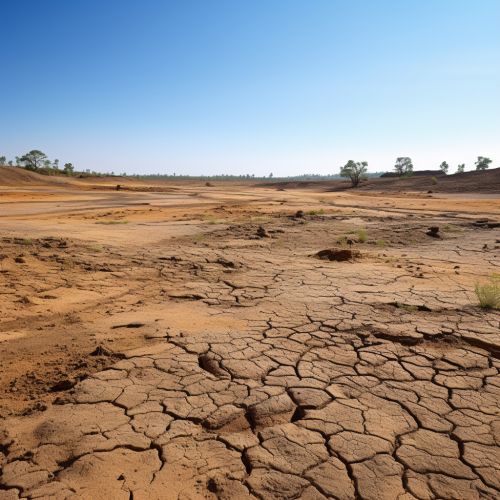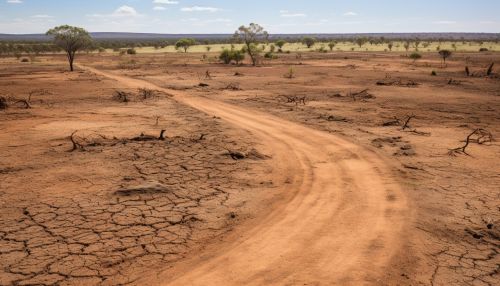Land degradation
Introduction
Land degradation Land degradation is a global issue that affects the planet's terrestrial ecosystems. It is a process in which the value of the biophysical environment is compromised by one or more combination of human-induced processes acting upon the land. It is viewed as any change or disturbance to the land perceived to be deleterious or undesirable.
Causes
The primary causes of land degradation include land clearance and deforestation, agricultural depletion of soil nutrients through poor farming practices, livestock including overgrazing and overdrafting of groundwater in irrigated Irrigation agricultural systems.
Effects
Land degradation results in a loss of ability of the land to function effectively within the ecosystem and to provide its services, including soil fertility, biodiversity, and carbon sequestration. It can also lead to soil erosion, salinization, and desertification.
Prevention and Mitigation
There are several approaches to preventing and mitigating land degradation, including sustainable land management practices such as low-till agriculture, agroforestry, and reforestation. Other strategies include policy and economic instruments, integrated landscape planning, and participatory planning.
Land Degradation and Climate Change
Land degradation has a strong relationship with climate change. It is both a cause and a result of climate change, and it is predicted that climate change will exacerbate land degradation in many regions.
See Also


